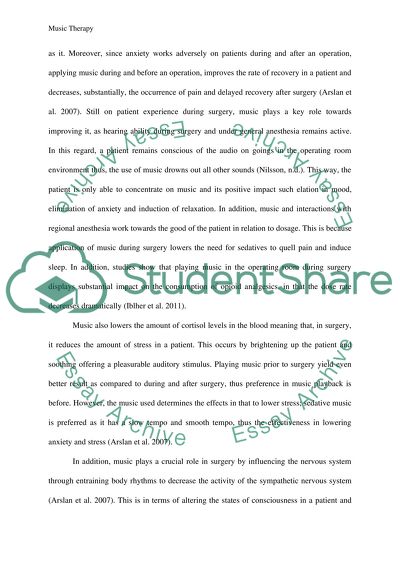Cite this document
(“Effects of Music Therapy Research Paper Example | Topics and Well Written Essays - 2000 words”, n.d.)
Retrieved from https://studentshare.org/anthropology/1457006-music-therapy
Retrieved from https://studentshare.org/anthropology/1457006-music-therapy
(Effects of Music Therapy Research Paper Example | Topics and Well Written Essays - 2000 Words)
https://studentshare.org/anthropology/1457006-music-therapy.
https://studentshare.org/anthropology/1457006-music-therapy.
“Effects of Music Therapy Research Paper Example | Topics and Well Written Essays - 2000 Words”, n.d. https://studentshare.org/anthropology/1457006-music-therapy.


